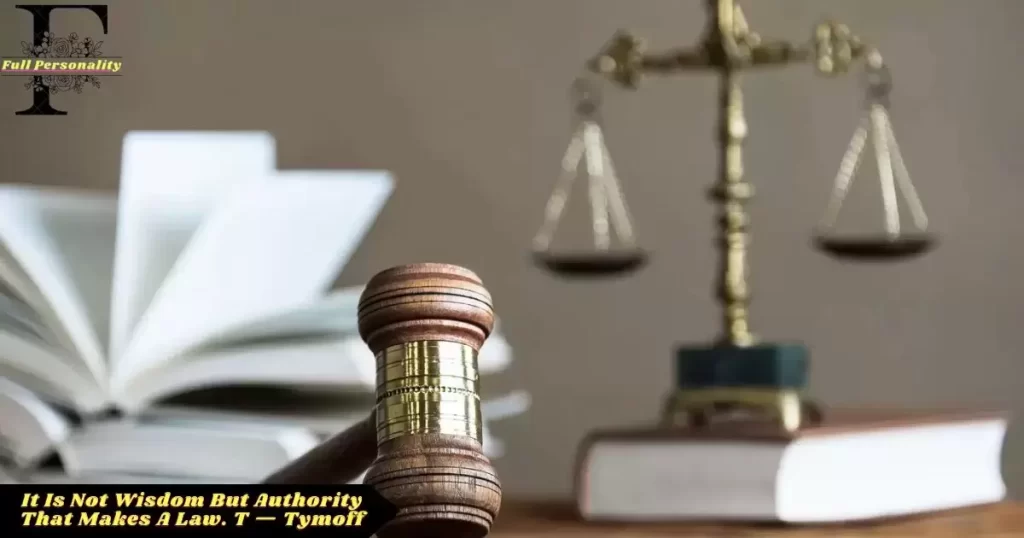
Decoding the Paradox: Does Authority Trump Morality in Law?
The provocative statement, “It is not wisdom but authority that makes a law,” by T. Tymoff, ignites a captivating debate about the foundation of law and its intricate relationship with morality. Does the legitimacy of a law solely stem from the pronouncements of those in power, or does it require a deeper connection to ethical principles and societal wisdom?
Delving into this question unveils a fascinating paradox: the tension between authority and the yearning for a moral grounding in the legal system.
The Power of Authority: Establishing a Framework for Order
Tymoff emphasizes the undeniable role of authority figures (legislatures, courts, governing bodies) in shaping legal landscapes. These authorities enact and enforce laws that establish the foundation for social interaction. Laws dictate rights, responsibilities, and the consequences of transgressing established norms.
Without this legal framework, societies would descend into chaos. Laws provide a crucial structure for:
Maintaining stability and predictability in daily life.
Resolving disputes in a fair and consistent manner.
Deterring crime and promoting public safety.
The Potential Pitfalls of Authority-Driven Law
However, Tymoff’s quote also raises concerns about the potential limitations of authority. Laws enacted solely by those in power may not always reflect inherent moral principles or what society deems “wise.”
Here’s why:
Political Agendas: Laws can be influenced by political pressure, leading to legislation that benefits certain groups or infringes on fundamental rights.
Societal Biases: Laws can reflect the prevailing biases of a particular era. Historical examples include segregation laws in the US or limitations on religious freedom. These laws were legal at the time but morally repugnant by today’s standards.
The Allure of Wisdom: Weaving Morality into the Legal Tapestry
While Tymoff emphasizes authority, it’s crucial to acknowledge the influence of wisdom on law. When lawmakers approach legislation with a foundation in ethical principles and a desire for fairness and justice, the resulting laws have a greater chance of aligning with widely held societal values.
Just laws often reflect core moral principles such as:
Protecting individual rights
Promoting equality before the law
Ensuring the safety and security of citizens ([Keywords: ethical principles in law, just laws and morality])
The Intertwined Threads: Authority Enacting Wisdom’s Edicts
The ideal scenario lies not in a stark contrast between authority and wisdom, but rather in their harmonious confluence.
Authority figures, armed with the wisdom gleaned from ethical principles and a deep understanding of societal needs, can craft laws that are not only enforceable but also just and equitable.
Public discourse, legal scholarship, and a well-informed citizenry all contribute to ensuring that laws are not merely pronouncements of power but also grounded in sound moral principles.
A Continuous Negotiation
The relationship between law and morality is a complex and ever-evolving negotiation. While authority figures undoubtedly play a crucial role in enacting laws, the influence of wisdom and societal values is equally important:
Laws should evolve with societal changes to reflect current moral understandings.
Public education empowers individuals to participate in shaping the legal landscape and holding their elected officials accountable for enacting morally sound laws.
In conclusion, Tymoff’s quote sparks a valuable discussion about the foundation of law. While authority is essential for creating a functioning legal system, the true legitimacy of law lies in its ability to uphold order, protect fundamental rights, and reflect the evolving moral compass of the society it serves.




